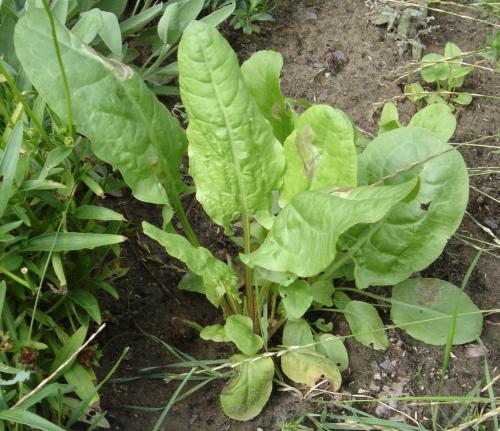What is Sorrel
First of all, common sorrel or garden sorrel (Rumex acetosa) should not be confused with the Caribbean sorrel which is part of the Roselle (Hibiscus) family. Other names for sorrel include spinach dock and narrow-leaved dock.
Sorrel is a perennial herb that grows all over the world in places like Northern Nigeria, Russia, Romania, Vietnam and others. Sorrel is used to flavor soups and sauces and can also be added to salads. The flavor is similar to kiwifruit or sour wild strawberries.
Sorrel is a hardy plant that will survive in colder climates. It is easy to grow your own in your garden using a herb garden container. The seeds can be planted indoors in early spring before being plated outdoors. You can also buy the plant from a nursery.
What are the Health Benefits of Sorrel
Digestive Health: The high content of dietary fiber that can be found in most varieties of sorrel mean that your digestive health can be improved by adding these leaves to your soups and salads. Dietary fiber adds bulk to food as it moves through the digestive system, improving your gastrointestinal health and reducing conditions like constipation, diarrhea, bloating, and cramping, as well as more serious gastrointestinal issues. Dietary fiber can also help to reduce total cholesterol in the body, thereby protecting heart health and reducing chances of atherosclerosis, heart attacks, and strokes. Blood Pressure: Sorrel has a very significant level of potassium (1 cup contains 15% of your daily recommended intake), which is an essential mineral for human health. Potassium is a vasodilator, as well as being instrumental in maintaining fluid balance throughout the body. This means that potassium reduces the stress on the cardiovascular system by relaxing the blood vessels and arteries. Lowered blood pressure reduces the chances of dangerous clotting and excessive strain on the heart that can lead to coronary heart disease and other complications. Cancer Prevention: Although the studies looking into the antioxidant components of sorrel are still ongoing, there is good evidence that sorrel contains polyphenolic compounds, flavonoids, and anthocyanins, all of which function as antioxidants in the human body. The wealth of antioxidants that sorrel contains means that it is very effective at seeking out free radicals in the body and neutralizing them before they can cause healthy cells to mutate into cancerous cells. Antioxidants have a wide range of effects in the body, but cancer prevention is their most high-profile benefit.
Eyesight Improvement: Vitamin A, another of the essential vitamins found in sorrel, has been closely connected to the improvement in eyesight and a reduction of macular degeneration and cataracts. Beta-carotene, which is a derivative of vitamin A, acts as an antioxidant, and combined with the other important antioxidant compounds in the body, sorrel can greatly boost eye health and prevent age-related degradation of that vital sense.
Circulation and Energy: The significant levels of iron in sorrel mean that it boosts red blood cell production and prevents anemia (iron deficiency). Increased circulation boosts oxygen levels throughout the body in the vital organs, boosts hair growth, increases energy levels, and speeds up the healing process (in conjunction with the protein content of sorrel).
Skin Conditions: The leaves of sorrel have been used in two ways to treat skin conditions. The leaves, when dried as an herb can be eaten, and this has been connected with a reduction in ringworm and itchy, dry skin. When fresh leaves are ground up, the liquid that is extracted can be applied topically to the area in question to reduce rashes and irritation. This is likely due to the vitamin C and vitamin A content in the leaves, as well as the other neutraceuticals found in this herb.
For more health benefits of sorrell go to organicfacts.net
Source: organicfacts.net
Image: Wikipedia

